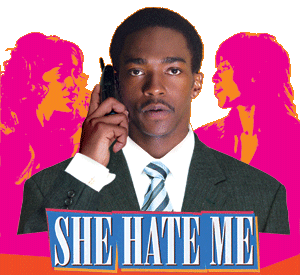Downing Street Memo Has Lingering Effect
Activists Use British Documents To Mount Media Campaign,
Put Bush on Defensive Over Iraq
By CHRISTOPHER COOPER
Staff Reporter of THE WALL STREET JOURNAL
June 28, 2005; Page A4
Write to Christopher Cooper at
christopher.cooper@wsj.com
A series of three-year-old British documents seized upon by those who think the Bush administration manipulated intelligence before the war with Iraq has demonstrated unusual staying power. That is due in part to declining public support for the conflict – but it also has much to do with an Internet campaign by war critics prodding journalists to talk about them.
Documents detailing the run-up to the Iraq war have been splashed across London newspapers since they surfaced in the fall and hit a crescendo on May 1 with the publication of the so-called Downing Street memo.
After a slow start in the U.S., a half-dozen liberal activists are having some success in making the documents fodder for Capitol Hill rhetoric and White House news briefings.
Their campaign comes at a dicey point for President Bush, who has seen support for his Iraq policy erode amid the insurgent violence that has followed January elections in that country. A spate of recent bombings in Iraq has taken a heavy toll on Iraqi security forces and has produced fresh anxiety in the U.S. about how long American troops will have to remain in Iraq.
Facing criticism from Democrats and some fellow Republicans, Mr. Bush will deliver a nationally televised speech from Fort Bragg, N.C., tonight in an attempt to regain the high ground in public opinion.
The documents, summarizing meetings between U.S. and British officials in the spring and summer of 2002, appear to lend support to what administration critics have long alleged: That the White House was determined to invade Iraq nearly a year before it did and that it "fixed" intelligence to justify the invasion.
In many ways, though, the documents don't reflect much new; at the time they were produced, U.S. news outlets were speculating that Mr. Bush might be heading toward conflict in Iraq, which is why they garnered little attention here when reported earlier.
Still, the memos have galvanized left-leaning activists in the U.S., with some even saying the matter justifies impeachment proceedings against Mr. Bush for lying to Congress. Though congressional Republicans so far have declined to hold hearings, minority Democrats have held their own mock hearing on the matter.
Meanwhile, the activists believe that a grass-roots Internet campaign to prod the U.S. media into covering them is yielding fruit. At a joint White House appearance recently, Mr. Bush and British Prime Minister Tony Blair both denied they had fixed anything and said they preferred alternatives to war. "There's nothing farther from the truth," Mr. Bush said. "Nobody wants to commit military into combat. It's the last option."
The current Internet pressure from the left is reminiscent of a publicity battle waged by conservatives during Mr. Bush's re-election run that questioned Democrat John Kerry's service as a Swift Boat commander in Vietnam and his antiwar activity that followed. Though Swift Boat Veterans for Truth used some traditional media to get its message out, the group mounted a potent cyberspace campaign that helped keep the issue at the fore of the public debate.
"The coverage seems to be getting more intelligent," after reporters initially gave the memos short shrift, says Jim Manley, a spokesman for Senate Minority Leader Harry Reid of Nevada. Mr. Reid himself has begun citing the documents in public remarks, ad libbing a reference to them in a recent Senate floor speech.
The most politically provocative document summarized a July 2002 meeting between Mr. Blair and other British officials. Though U.S. newspapers at the time were swirling with leaked Pentagon war plans, Mr. Bush maintained he was dedicated to finding a peaceful solution. The Downing Street memo recounts a meeting between a British official referred to as "C" and his U.S. counterpart. Media outlets in Britain and the U.S. have identified "C" as a senior British intelligence official.
In the document, the senior British intelligence official reported "a perceptible shift in attitude" about Iraq in Washington months before the war. "Military action was now seen as inevitable," the document says, and "Bush wanted to remove Saddam, through military action, justified by the conjunction of terrorism" and weapons of mass destruction. "But the intelligence and facts were being fixed around the policy."
In mid-May, three regular readers of Daily Kos, a liberal blog, published their own Web site to publicize the documents. According to its operators, Downingstreetmemo.com was created by a Silicon Valley Web-page designer, a Chicago college student and a Canadian citizen certain they had stumbled onto the smoking gun that could drag the Bush administration down.
They were joined later by three other Daily Kos readers, including Bob Fesmire, husband of the Silicon Valley Web designer. Mr. Fesmire, a marketing executive for an engineering business, said he returned from a business trip to find his wife, Gina, obsessed with the leaked British documents, so he read them. "I said, 'This is it -- this is what's going to crack this whole thing open,' " Mr. Fesmire recalled.
He was equally struck by the lack of interest in the documents, even among liberals.
The idea to target news operations came from Michael Clark, a Pennsylvania professor of ancient history and occasional poster to Daily Kos who didn't know the Fesmires before joining the effort.
Mr. Clark said he knew nothing about running such a campaign, but decided to contact three media outlets a day, including the likes of C-Span, the Associated Press and The Wall Street Journal.
On June 3, the group directed messages to NBC. On June 6, MSNBC did a segment on the Downing Street memo. On June 9, Brian Williams, anchor and managing editor of NBC's evening newscast, posted a request for a truce on his Internet blog: "One more note to those of you who are part of the mass email project on the so-called Downing Street Memo: That's enough, we get it...it's an important story...and all you're doing now is taking up computer space. We're well aware of the story, we've covered it, and likely will again."
Mr. Clark broadened his efforts to include smaller newspaper chains and newspapers, searching for email addresses of specific editors. Downingstreetmemo isn't the only Internet-based group calling attention to the British documents. Overall, the efforts appear to be working.
A search of U.S. publications and television news-program transcripts shows that in the two weeks after the London Times broke its story, the Downing Street memo was mentioned fewer than 100 times. The phrase has appeared nearly 800 times since Mr. Clark's efforts began, although it isn't clear the extent to which this is the result of his campaign.
Mr. Clark plans to turn his campaign on Congress this summer and has told supporters to email Senate Intelligence Committee Chairman Pat Roberts of Kansas. "I've been so busy with this that I haven't been out to spray my orchard," Mr. Clark said. "I'm going to lose my crop this year."
A spokeswoman says the Republican senator has received about 40 emails but doesn't plan to hold hearings.
Mr. Fesmire, the group's spokesman, said he is often asked who is really behind Downingstreetmemo.com and what kind of support it is receiving from national liberal groups. The truth, he said, is hard for some people to swallow.
"It really is just six people, and I don't even know the name[s] of two of them," he said. "People find it hard to believe it when I tell them that for a $20 Web-hosting fee, you too can get something like this going."

 Song for Cindy Sheehan Video
Song for Cindy Sheehan Video




































 Madeleine BAROUKHEL-MOUREAU
Madeleine BAROUKHEL-MOUREAU 




























0 Comments:
Post a Comment
<< Home